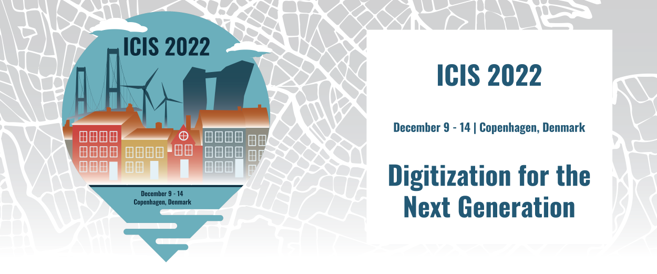Loading...
Paper Number
1258
Paper Type
Complete
Description
How post-pandemic workplaces will evolve is one challenging decision organizations must consider. Prior studies have explored remote work and digital workplace transformations. However, literature offers only little insight into the status quo of employees' preferences for their future workplace and its consequences. This paper posits that employees' openness to digital change influences hybrid workplace preference. Performance and personal outcome expectations further have a mediating role in this relationship. Finally, hybrid workplace preferences can lead to office resistance and the intention to leave. This paper draws on social cognitive theory and sheds light on the interplay of employees' preferences and potential consequences for businesses. We empirically tested the proposed model with survey data from U.S. employees. Findings show that hybrid settings are critical to attracting talent open to digital change. The contribution to IS literature is manifold and contains implications on how to envision the future workplace successfully.
Recommended Citation
Weritz, Pauline; Matute, Jorge; Braojos, Jessica; and Kane, Jerry, "How Much Digital is Too Much? A Study on Employees’ Hybrid Workplace Preferences" (2022). ICIS 2022 Proceedings. 3.
https://aisel.aisnet.org/icis2022/is_futureofwork/is_futureofwork/3
How Much Digital is Too Much? A Study on Employees’ Hybrid Workplace Preferences
How post-pandemic workplaces will evolve is one challenging decision organizations must consider. Prior studies have explored remote work and digital workplace transformations. However, literature offers only little insight into the status quo of employees' preferences for their future workplace and its consequences. This paper posits that employees' openness to digital change influences hybrid workplace preference. Performance and personal outcome expectations further have a mediating role in this relationship. Finally, hybrid workplace preferences can lead to office resistance and the intention to leave. This paper draws on social cognitive theory and sheds light on the interplay of employees' preferences and potential consequences for businesses. We empirically tested the proposed model with survey data from U.S. employees. Findings show that hybrid settings are critical to attracting talent open to digital change. The contribution to IS literature is manifold and contains implications on how to envision the future workplace successfully.
When commenting on articles, please be friendly, welcoming, respectful and abide by the AIS eLibrary Discussion Thread Code of Conduct posted here.



Comments
04-Work